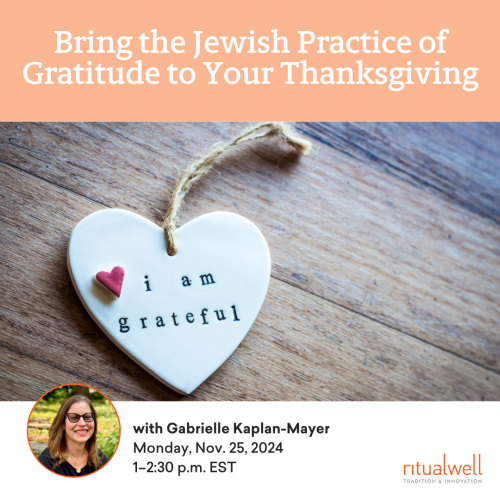Our most holy texts make it clear that we may not stand idly by while violence is perpetrated in our midst.
Our most holy texts make it clear that we may not stand idly by while violence is perpetrated in our midst. There is a place for faith and religion in trauma stewardship and activism. There can be healing found in religion. There can be the motivation and courage for social justice work found in religion.
The Yizkor service is a memorial service performed four times during the Jewish year. On Yom KippurThe holiest day of the Jewish year and the culmination of a season of self-reflection. Jews fast, abstain from other worldly pleasures, and gather in prayers that last throughout the day. Following Ne'ilah, the final prayers, during which Jews envision the Gates of Repentance closing, the shofar is sounded in one long blast to conclude the holy day. It is customary to begin building one's sukkah as soon as the day ends., a somber day of contemplation and reflection, our Yizkor service ties us to our departed loved ones and empowers us to do good work in this world in their honor. This service aims to bring healing, mourning, and support to all those seeking it, with a special focus this time on those who have been survivors and victims of sexual assault, and with an incitement to let us work toward fighting and healing from rape culture.
As a feminist, and a person of faith, I find that our faith communities far too rarely speak out and stand with survivors and victims of sexual violence, and their families. Today, faith communities are coming together to make visible their commitment to this work.
Yom Kippur is the holiest day of the Jewish calendar. On this day, Jews deny themselves basic comforts like perfume and makeup, leather shoes, and food and drink. For many of us, the physical discomfort of our fast grounds us in the earthly needs and experience of living. We are all seeking on this day to be the most present, aware of our surroundings and our behavior the past year. Yom Kippur reminds us that the Jewish idea of sin can translate to “missing the mark.” By sinning, we are not inherently sinful people, but rather we remain tahor, pure, betzelem Elohim, in the image of God. We have sinned, but we are not sinful inherently.
The principles of restorative justice teach us that cycles of violence, that harm when perpetrated is most often committed by someone who has themselves experienced harm. On this Yom Kippur, let us sit in the difficulty that is knowing that no one person holds just one identity. That teshuvah is an ongoing process of breaking and healing, but that healing, and justice, is possible.
Some have the custom to not attend a Yizkor service if their parents are still alive, as superstition suggests that attending Yizkor could hasten a parent’s death. Others attend for the deceased who have no one to say Yizkor for them. The Reconstructionist prayerbook Kol Haneshamah teaches us that “the traditional phrase said for the dead, zikaron livracha, זכרון לברכה, may their memory be for blessing, reminds us that part of our purpose in remembering is to have our memories influence us to do good.”[1] At this Yizkor service we remember the lives lost to sexual assault and trauma, as well as the safety and shattering of wholeness that will be, God willing, only temporary. May justice to come in our days, in our homes, in our streets, in our hearts, in our culture.
[1] Kol Haneshamah Yizkor Service, David A. Teutsch.
For a full script of the Yom Kippur Yizkor Service for Victims and Survivors of Sexual Assault, see here.
Ariana Katz is a rabbinical student at the Reconstructionist Rabbinical College. She is committed to the power of communal healing and accountability as a key part of social justice work. She sees in the frameworks that Jewish ritual provides the potential to shift private moments into transformative personal ritual, and public gatherings into powerful opportunities for real change.






